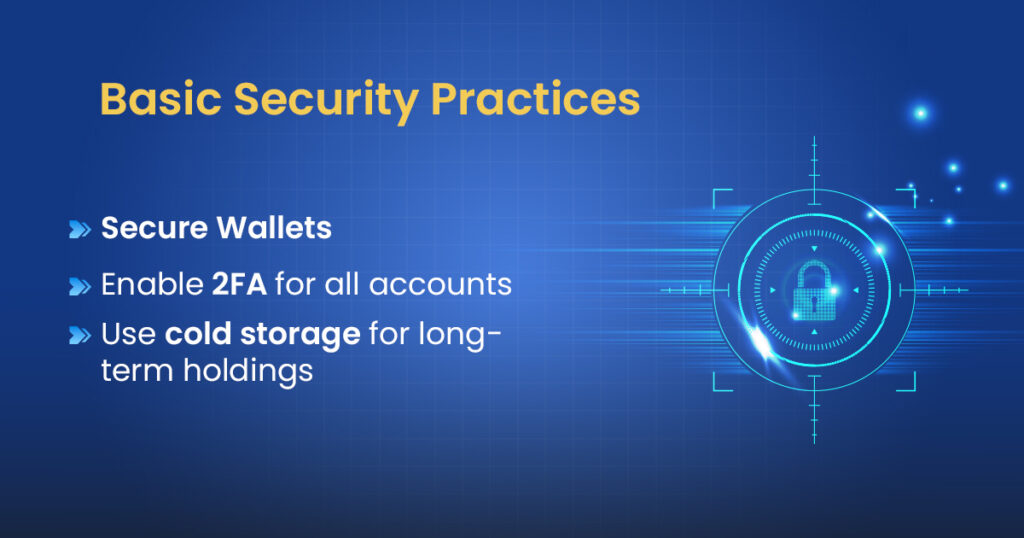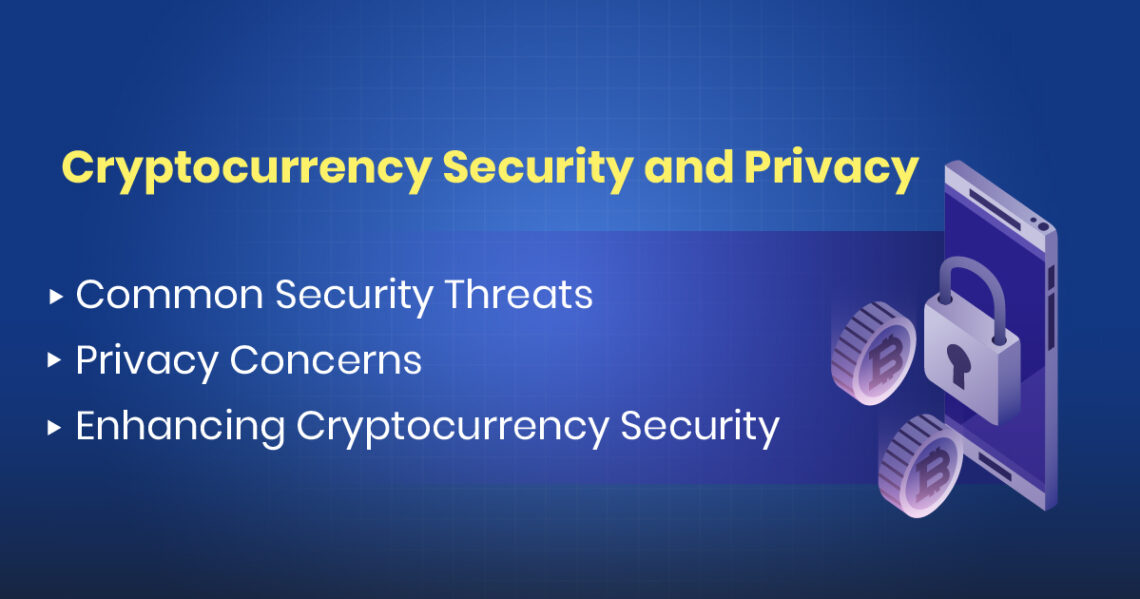Key Takeaways
- Why It Matters: Crypto gives financial control without banks, but security depends fully on the user. While blockchain is transparent, it can expose privacy if not handled carefully.
- Main Threats: Risks include phishing attacks, wallet or exchange hacks, malware like keyloggers, insider leaks, and user mistakes such as lost keys or wrong transfers.
- Privacy Concerns: Blockchain is pseudonymous but still traceable. Public ledgers, surveillance tools, and limited privacy features in most coins make anonymity difficult.
- Best Security Practices: Use trusted wallets, enable 2FA, keep most funds in cold storage, update devices regularly, and back up private keys/seed phrases safely.
- Maintaining Privacy: Options include using privacy coins like Monero or Zcash, avoiding identity-linked addresses, and being careful with mixing services, while staying aware of regulations.
- Key Takeaways
- Why Cryptocurrency Security and Privacy Matter
- Common Security Threats in Cryptocurrency
- Privacy Concerns in the Crypto Space
- Enhancing Cryptocurrency Security
- Ensuring Privacy in Cryptocurrency Transactions
- The Role of Crypto Shorting in Security
- Challenges in Achieving Complete Security and Privacy
As cryptocurrencies continue to revolutionize the financial world, concerns about security and privacy have taken center stage. With the increasing adoption of digital currencies, ensuring the safety of assets and protecting user anonymity has become a priority for individuals and institutions alike. This article explores the key aspects of cryptocurrency security and privacy, the challenges involved, and strategies to mitigate risks effectively.
Why Cryptocurrency Security and Privacy Matter
Unlike traditional banking systems, cryptocurrencies operate in a decentralized environment without intermediaries. While this ensures financial sovereignty, it also places the responsibility of securing assets squarely on the individual. The lack of centralized control makes cryptocurrencies resistant to government interference but also makes them a target for cyberattacks.
Privacy is another critical concern, as blockchain transactions, while secure, are often transparent and publicly accessible. Balancing the benefits of transparency with the need for anonymity is a significant challenge in the crypto world.

Common Security Threats in Cryptocurrency
- Phishing Attacks
Fraudsters use fake websites, emails, or social engineering tactics to trick users into revealing their private keys or login credentials. - Hacks and Exploits
Cryptocurrency exchanges and wallets are frequent targets for hackers. High-profile breaches have resulted in the loss of millions of dollars. - Malware
Malicious software, such as keyloggers or clipboard hijackers, can steal sensitive information and redirect transactions. - Insider Threats
Even within secure platforms, insider threats can compromise sensitive data or facilitate unauthorized transactions. - Human Error
Mistakes, such as sending funds to the wrong address or losing private keys, can result in irreversible loss of assets.
Privacy Concerns in the Crypto Space
- Public Ledger Transparency
Most blockchains are transparent by design, meaning transaction details are accessible to anyone. While pseudonymous, addresses can sometimes be linked to real identities. - Tracking and Surveillance
Advanced blockchain analytics tools can trace transactions, posing a risk to user anonymity. Governments and private entities may use these tools for surveillance. - Lack of Privacy Features
Not all cryptocurrencies prioritize privacy. Assets like Bitcoin and Ethereum are more transparent than privacy-focused coins like Monero or Zcash.
Enhancing Cryptocurrency Security
- Use Secure Wallets
Choose a hardware wallet or a reputable software wallet with robust security features. Avoid storing significant amounts on exchanges. - Enable Two-Factor Authentication (2FA)
Strengthen account security by enabling 2FA for exchanges and wallet services. - Regular Updates
Keep your wallet software and devices updated to protect against known vulnerabilities. - Cold Storage
Store long-term holdings in offline wallets, which are less vulnerable to hacking. - Backup Private Keys
Create multiple backups of your private keys and store them in secure, separate locations.
Ensuring Privacy in Cryptocurrency Transactions
- Use Privacy Coins
Consider using cryptocurrencies like Monero, Zcash, or Dash, which have built-in privacy features. - Mixing Services
Coin mixers obscure transaction trails by blending funds with those of other users. However, these services may attract regulatory scrutiny. - VPNs and TOR
Use Virtual Private Networks (VPNs) or TOR to mask your IP address and maintain anonymity while transacting. - Avoid Reusing Addresses
Generate a new address for each transaction to reduce the likelihood of being tracked.
The Role of Crypto Shorting in Security
Crypto shorting, a trading strategy where investors bet against the price of an asset, can also highlight vulnerabilities in the cryptocurrency market. By monitoring short positions, investors and platforms can identify potential weaknesses or overvaluations in specific assets, contributing to market stability and security.
While crypto shorting is primarily a financial strategy, it underscores the importance of understanding market dynamics and potential risks, helping users make more informed decisions.
Challenges in Achieving Complete Security and Privacy
- Evolving Threats
Cybercriminals constantly develop new tactics to exploit vulnerabilities, making it essential to stay updated on security best practices. - Regulatory Oversight
Stricter regulations may limit privacy-focused solutions, such as mixers or privacy coins. - User Awareness
Many security breaches occur due to user negligence or lack of knowledge about safeguarding assets. - Scalability of Privacy Solutions
Implementing robust privacy features can sometimes conflict with blockchain scalability and efficiency.
Conclusion
Cryptocurrency security and privacy are fundamental to the success and trustworthiness of the digital asset ecosystem. By adopting best practices, using privacy-focused tools, and staying vigilant, users can significantly reduce risks and protect their assets.
As the crypto space evolves, innovations in security and privacy will play a crucial role in fostering widespread adoption and confidence.
By prioritizing safety and anonymity, the cryptocurrency community can continue to build a robust, secure, and inclusive financial future.










